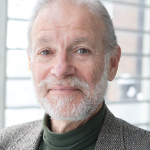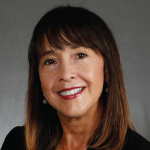
Dr. Sigal
“First, we all make mistakes—even the best clinicians. And even if you make no mistakes whatsoever, bad things happen. When you make mistakes, you need to learn from them so they don’t happen again. Everything you do from then on can honor the patient with whom you made your mistake. The changes you make in your practice in response are a tribute to that patient,” Dr. Sigal says. He agrees that physicians who make medical mistakes need to be able to forgive themselves, and he plans to write a journal article about how they can do that.
The cost of doctors not forgiving themselves is a higher risk for burnout, which can lead to more medical errors, higher costs of healthcare and professionals having to leave the field, Dr. Stuart says. “There’s definitely a connection between burnout and lack of self-forgiveness. Burnout, in a sense, is caused by caring too much. Then, when things don’t go well, you give up to protect yourself. You turn off your emotions, and the result is emotional exhaustion, depersonalization and compassion fatigue.”
A recent meta-analysis of 82 studies by Michelle Salyers, et al., confirms that burnout is associated with quality and safety issues in healthcare.2
Not Just Losing a Patient
“Many rheumatology patients suffer from chronic diseases. We may treat them for 10 or 20 years and really get to know them as human beings,” notes Afton Hassett, PsyD, associate research scientist and clinical psychologist at the University of Michigan Medical School and past president of the ARHP. “When a long-term patient passes away, you’re not just losing a patient, you’re experiencing a real loss.” Doctors are human beings, and accumulated levels of stress from these losses can leave them more vulnerable to negative emotional reactions.

Dr. Hassett
Too often, Dr. Hassett says, rheumatologists fail to take the kinds of advice they give to their patients about taking time off when needed, practicing meditation, getting enough exercise and sleep. “And they’re not willing to reach out to other professionals to talk about the difficult things that have happened. If you’re not in a good place personally, with sufficient attention to self-care and work-life balance, it’s harder to bounce back when something bad happens.”
Doctors need to be able to process what happened, to make sense of it, to find a moral to the story, she says. “If you can ‘get’ and accept what happened, it’s easier to forgive yourself. But for that, you need to talk to other people, friends and colleagues who understand what you’re going through, with whom you can let your guard down. It’s practically a necessity if you want a sustainable medical career for the long term.”


